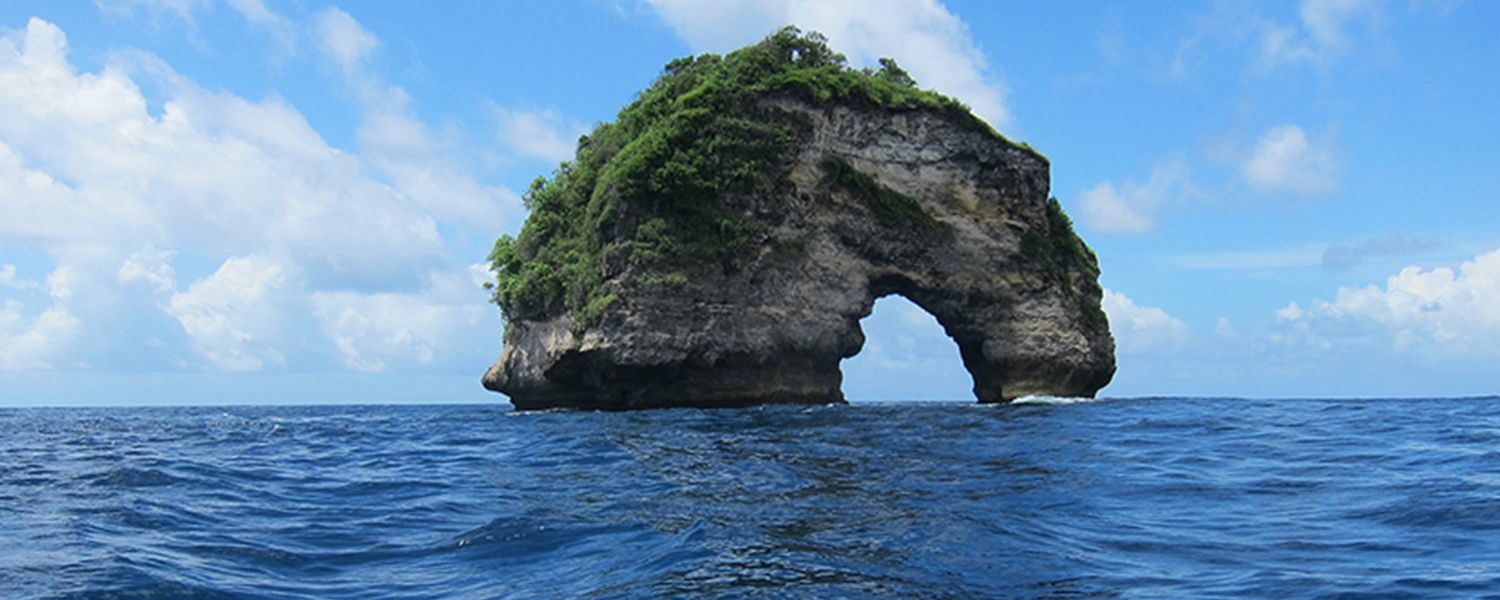
On saying goodbye
By: Leah Effron, high school alumna January 28, 2020 High School Adventures, Scuba, Sailing
The sharp Caribbean sun shone brightly on the back of my sweat-damp, paint-splattered neck as I bent over to dip my wide-brimmed brush into the periwinkle paint. I charily mounted the rickety ladder, brush in hand, to complete the sky motif on the anti-drug mural I was painting in Portsmouth, Dominica. I was there, along with eleven other American teenagers and two leaders on a community service trip. After completing the final brushstroke, I stepped back to absorb my surroundings: The vivid blue sky served as a backdrop to the ramshackle huts that abutted pot-holed roads, towering coconut trees and an abandoned cemetery.
For ten days, my group worked at the town’s youth center from dawn until late afternoon painting murals and cleaning the cemetery. The children and adults who lived nearby took notice of our presence (for a group of fourteen white people was a rare spectacle) and joined us in painting the mural. On the first day, I was drawn to an unimposing boy of about ten. He had deep, brown penetrating eyes and lanky limbs. The sclera on his eyes, instead of being healthy white, had the slight yellow tint of malnourishment. On my second or third interaction with him I noticed that he walked around barefoot and each day wore the same frayed orange T-shirt and faded jean shorts. The boy seemed to be pensive, choosing to sit alone on a rock rather than gossip with his cohorts. I tried conversing with him throughout our stay; however he repeatedly demurred, giving one-word answers and at times refusing to respond altogether.
I would ask him in an overly cheery tone, “What’s your name?”
He would mutter under his breath, “Carlvin.”
“That’s a really nice name. Do you have any brothers or sisters?”
“Yes.”
“Oh neat! Older or younger? Boys or girls?”
“Younger. Two boys.”
And this is how our conversations went: I probed, he murmured. From my one-sided discourse with him, I learned that he had never met his father, lived down the street from where we were painting and sold mangoes and plantain chips out of his house to help support his family.
After ten days in Portsmouth, it was time to leave for our next location. As I was storing tubs of paint, Carlvin tapped me on the shoulder and motioned for me to follow him to his house. He shuffled his feet on the chalky dirt as I ambled behind him. The house was made solely of tin and cardboard. When we arrived, he told me to wait outside. He returned only a few moments later with a crumpled piece of lined-paper. He handed it to me, and on it, written in perfect penmanship, was a poem titled, “On Saying Goodbye.” The letter read:
“There are too many goodbyes in my life. Just too many.
Things were sad
And then things were bad
And now things were so much better.
But I have to say ‘goodbye.’
And even though there will be another ‘hello,’
I don’t want to see the friends and the times of this best of all summer go.
And if only your friend could be with me a little longer, just one more week, I’d have seven more whole days before I’d have to cry.”
I looked at Carlvin, his round, always-focused eyes now diverted and peeled on the ground.
“That’s beautiful. You really make me happy too,” I said in a meager attempt to lift his spirits.
“Thanks,” he muttered under his breath, eyes still fixed on the ground.
I often wonder why he tapped me on the shoulder. For I was his biggest bother, forcing conversation upon him, firing questions his way. While I connected with the other Dominicans, I was almost certain that my attempt to forge a bond with Carlvin had been futile. He never asked questions about my life, as did the others, never smiled or chuckled at my jokes. Carlvin remained sullen, his large oval, piercing eyes soaking up everything around him.
I was overwhelmed with confusion. I felt pleased that I had brought temporary joy to this boy’s life, while also feeling sorry for his sadness. However, I achieved some clarity about my aspirations. While helping others has always been important to me, this encounter provided a new insight into why it was so important. The fact that I had unknowingly brought some shard of joy to this young boy’s life made me realize that I have the power to spread happiness. I latched on to the idea that I have the capacity to provide solace to those in rough times. Carlvin’s letter cultivated in me a newly heightened desire to pursue acts of healing.
Prior to receiving Carlvin’s letter, I was focused on helping others with personal gain in mind. Even more important I realized that truly helping someone else does not require instant satisfaction. I became aware of the folly that is narcissistic gratification. The true desire to help someone else must stem from selflessness rather than the drive to bolster one’s own self-esteem — an invaluable lesson learned from a crumpled piece of paper, on a steamy summer’s day, in Portsmouth, Dominica.
